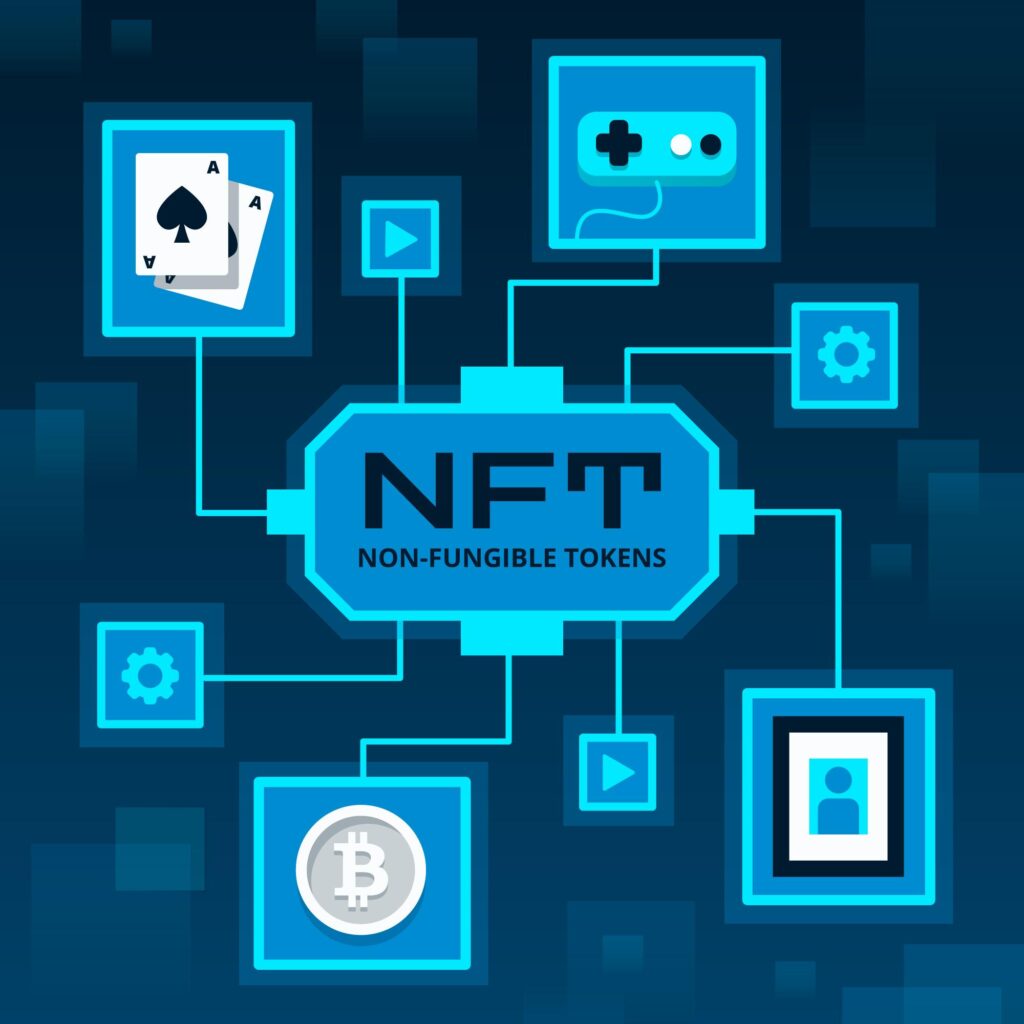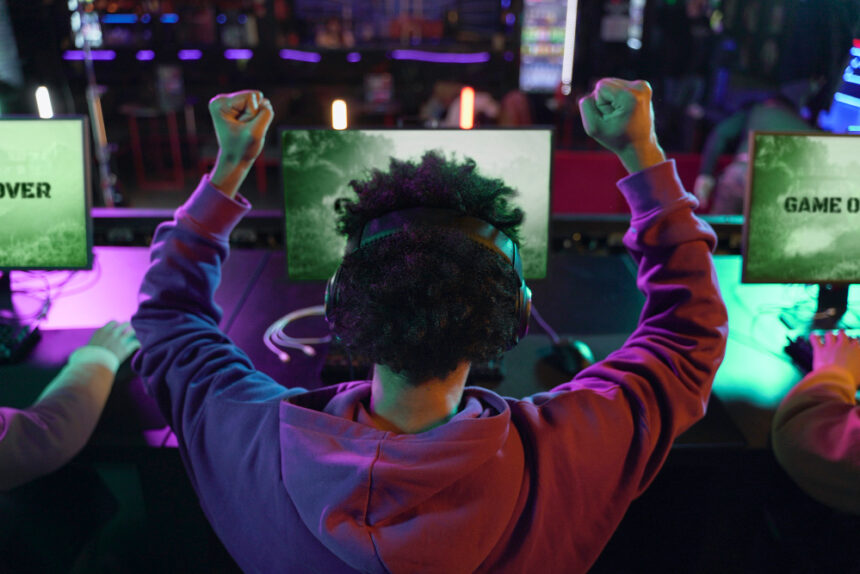The gaming industry has seen immense transformation over the past few decades. From pixelated arcade games to immersive virtual reality experiences, technological advancements have continued to redefine how players interact with digital worlds. One of the most revolutionary developments in recent years is the integration of blockchain technology and the rise of play-to-earn (P2E) models. These innovations have the potential to reshape the gaming landscape, offering new financial opportunities and unprecedented ownership of digital assets.
As blockchain gaming continues to gain momentum, more developers and players are exploring how decentralized systems can enhance the overall gaming experience. The future of gaming is no longer limited to mere entertainment; it is evolving into an ecosystem where users can earn real rewards, trade in-game assets securely, and participate in decentralized economies. But how exactly is this transformation taking place? Let’s dive deeper into the role of play-to-earn models and blockchain integration in the gaming industry.
The Rise of Play-to-Earn (P2E) Gaming
Play-to-earn gaming is a concept that has gained massive popularity, especially in blockchain-based ecosystems. Unlike traditional gaming models that require players to spend money on in-game purchases without any financial return, P2E games allow users to earn digital assets, tokens, or cryptocurrencies by participating in gameplay. This shift from “pay-to-play” to “play-to-earn” has created an entirely new gaming economy where players have more control over their virtual assets.
One of the main drivers of the P2E model is its ability to reward players with real-world value. In conventional games, players invest time and money into acquiring skins, weapons, or characters that remain locked within a specific game. With P2E, these assets can be traded, sold, or even used in other compatible games. This introduces an exciting new level of financial incentive, making gaming not only fun but also potentially profitable.
Several popular games, such as Axie Infinity, The Sandbox, and Decentraland, have embraced the play-to-earn model, attracting millions of players worldwide. These games leverage blockchain technology to ensure transparency and security, allowing players to truly own their digital assets. With more gaming companies exploring this model, it is expected that P2E gaming will continue to evolve, offering new opportunities for both developers and gamers alike.
Blockchain Integration in Gaming: A Game-Changer
Blockchain technology is at the core of the play-to-earn revolution. By decentralizing gaming ecosystems, blockchain ensures that digital assets are secure, verifiable, and free from manipulation. Unlike traditional games, where in-game purchases and rewards are controlled by a centralized authority, blockchain games allow for true ownership and seamless transactions.
One of the biggest advantages of blockchain in gaming is the introduction of non-fungible tokens (NFTs). NFTs enable players to own unique in-game assets, such as characters, weapons, or land, which can be traded on secondary markets. This means that players are no longer bound to a single game; instead, they can buy, sell, and transfer their assets across different platforms, fostering a new digital economy.
Additionally, blockchain integration enhances transparency and security. Since all transactions are recorded on an immutable ledger, fraud and cheating are significantly reduced. Players can verify ownership and authenticity of digital assets, making gaming experiences fairer and more trustworthy. As a result, developers are increasingly incorporating blockchain technology to create innovative, decentralized gaming experiences that empower players.
Benefits of Play-to-Earn and Blockchain Gaming

The integration of play-to-earn models and blockchain technology offers numerous benefits that are transforming the gaming industry. One of the most significant advantages is financial empowerment. Traditional gaming often requires players to spend money without any return, but with P2E, users can generate income simply by playing. This is particularly beneficial for gamers in developing countries, where play-to-earn games have provided a new source of revenue.
Another key benefit is asset ownership. In traditional gaming, players invest in in-game items that cannot be transferred or sold outside of the game’s ecosystem. With blockchain gaming, users have true ownership of their assets, allowing them to trade or sell their items on decentralized marketplaces. This gives players more control over their gaming investments and adds real-world value to virtual experiences.
Furthermore, blockchain-based gaming introduces a higher level of security and transparency. Because transactions are recorded on a decentralized ledger, the risk of fraud, hacking, or manipulation is minimized. This ensures a fair gaming environment where players can trust the integrity of in-game transactions and asset ownership.
Challenges and Future Outlook
While the future of gaming with blockchain and play-to-earn models is promising, it also comes with its own set of challenges. One of the main obstacles is scalability. Blockchain networks often face congestion and high transaction fees, which can hinder smooth gaming experiences. Developers are working on solutions such as layer-2 scaling and more efficient consensus mechanisms to address these issues.
Another challenge is regulation. As play-to-earn gaming involves real financial transactions, it raises concerns about taxation, legality, and compliance with financial regulations. Governments and regulatory bodies are still navigating how to oversee blockchain-based gaming to ensure fair play and consumer protection.
Despite these challenges, the future of gaming remains bright. With advancements in blockchain technology, artificial intelligence, and virtual reality, gaming experiences will continue to evolve, offering more immersive, rewarding, and decentralized opportunities. As more players and developers embrace these innovations, gaming is set to become a powerful economic force in the digital era.
Conclusion: The Road Ahead for Blockchain and Play-to-Earn Gaming
The gaming industry is undergoing a radical transformation, with play-to-earn and blockchain technology leading the way. By empowering players with financial opportunities, true ownership of digital assets, and enhanced security, these innovations are redefining how games are played and monetized. While challenges remain, the continued development of blockchain gaming will likely lead to new breakthroughs that make gaming more accessible, transparent, and rewarding.
As we look ahead, the future of gaming is set to be more than just entertainment—it is becoming a dynamic ecosystem where players, developers, and investors can thrive. Whether you are a casual gamer, an aspiring game developer, or an investor looking for the next big thing, keeping an eye on the evolution of blockchain gaming is essential. The revolution has begun, and the next generation of gaming is closer than ever before.

